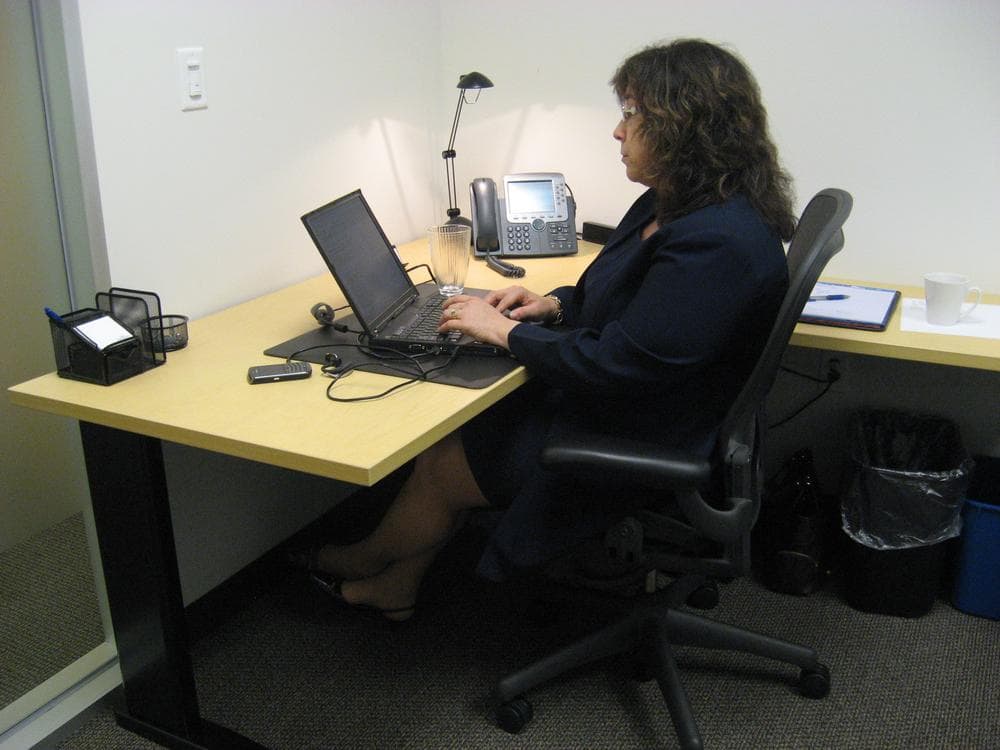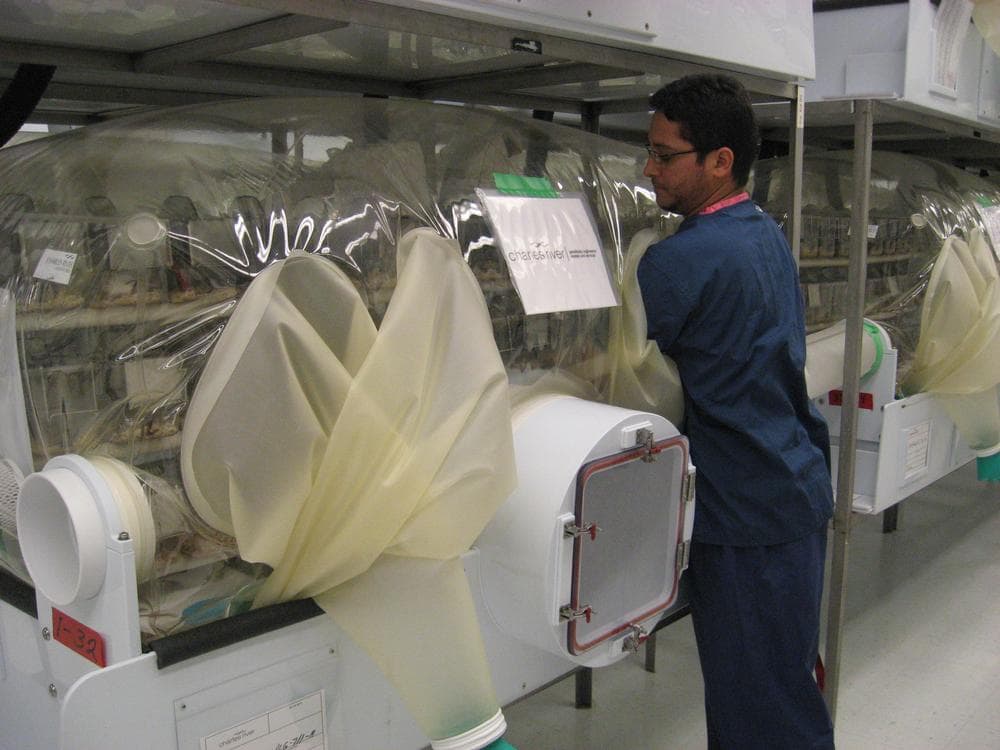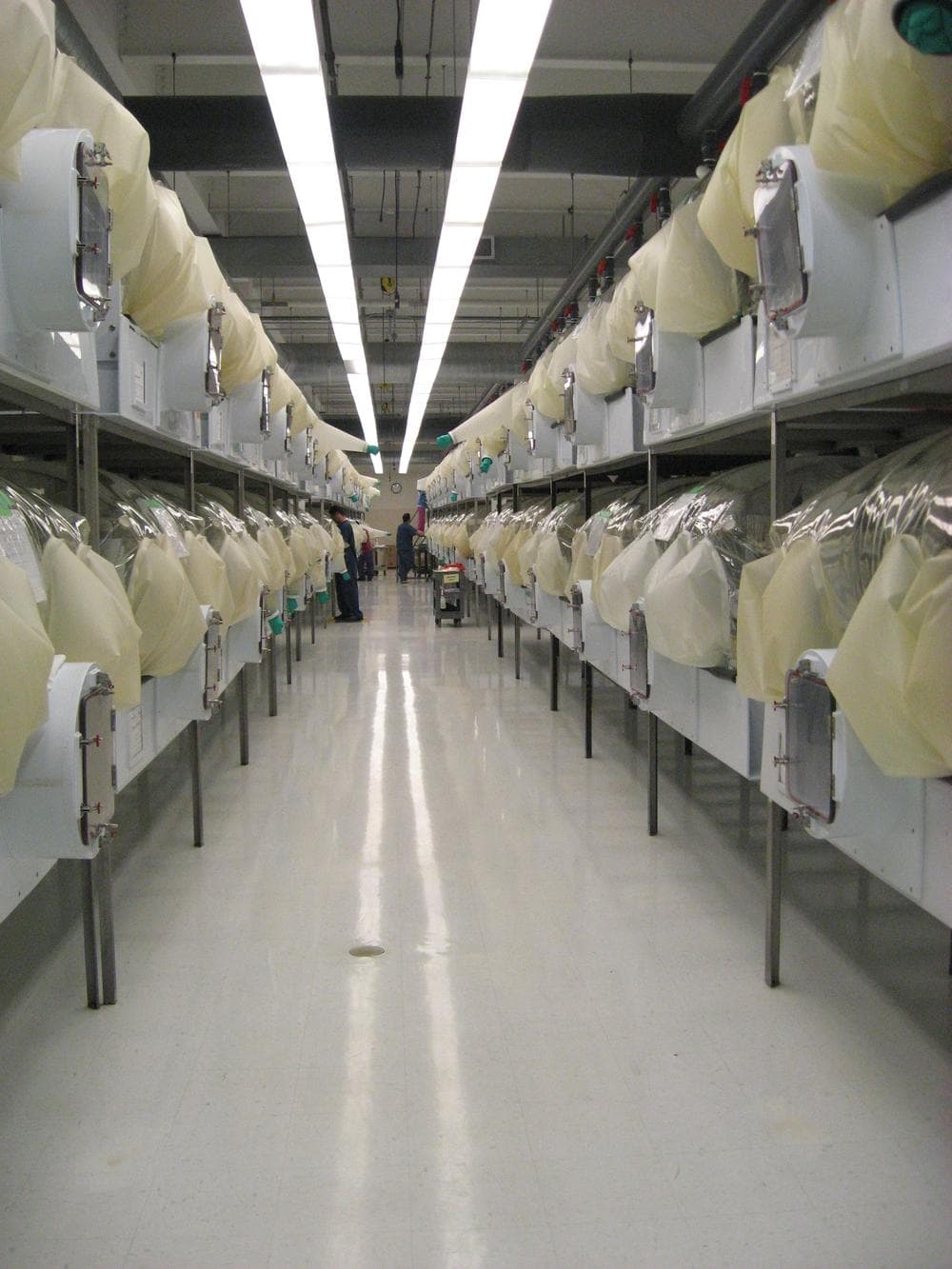Advertisement
One-Person Drug Companies Sprouting Up In Boston
Resume
Dennis Goldberg runs a drug company out of one corner of his living room.
"It’s very different from the hermetically sealed office buildings where you can’t open the windows," Goldberg said. "Here I can open the windows and get the fresh air coming through, it’s nice."
His home in Sudbury looks out over a flooded cranberry bog. Each morning someone comes to pick up his giant schnauzer, so Goldberg can work in quiet for a few hours. The drug he and a couple of investors are putting through human trials right now is a cholesterol drug, an improvement over Lipitor. But Goldberg said he doesn’t need to have a corporate headquarters in Cambridge for LipimetiX to be successful.
"Do we really need to build another big company?" he asked. "In this industry, there are plenty of pharma companies, there are 4,500 bio-tech companies. We need more drugs. So we’re just focusing on the drug part."
What Goldberg does is simply contract out the work he needs to get done. A peptide manufacturer makes the drug for him. Then he hires a lab to research it and then contracts with medical clinics to do the drug trials.
Goldberg is spending $6 million of his and investor money to take this cholesterol drug through the first set of human trials.
"Normally, you get this into a big company, you get all the bells and whistles, you spend all this money on overhead," Goldberg said, "you can spend easily $60-80 million."

This capital-efficient model is all the more essential now that the credit markets have dried up. Before, you needed to build a company so Wall Street would take you for real, so you could do an IPO. Today, the better way to go is to sell proven drugs to a large pharmaceutical company desperate to fill its pipeline. Hence these one man, one drug firms, though it’s not always one man, one drug, as Sheila DeWitt can attest.
"One of my big, er, small, investments?" she asked, laughing. "A headset for Skype," for computer videoconferencing.
DeWitt runs Deuteria Pharmaceuticals out of an Andover office she rents for $99 per month. She used to work at a Boston-area drug company that went under when its main drug failed. DeWitt was in charge of laying off workers, and trying to get out of the company’s 10-year office lease.
"It’s much more attractive to have a virtual company," DeWitt said. "If I’m able to sell the drug, I can just take my computer home with me, instead of shutting down a facility."
DeWitt wouldn’t have been able to go it alone a few years ago. Back then, you really had to be at a drug firm, because everything was in-house. But as their patents on blockbuster drugs started running out, companies needed to find ways to cut costs. So they started outsourcing, giving rise to contract research labs in the Boston area. The outsourcing trend really ramped up during the recession.
Now, DeWitt and Goldberg use those same contractors to do their drug research.

At Charles River Laboratoriess in Wilmington, whole warehouses are full of six-foot-long plastic isolation chambers where medical experiments are being run on mice.
Company CEO Jim Foster said Charles River is running more of these experiments lately for one-person drug firms.
"And they’re basically renting a bubble or a whole row of bubbles, or we hope a whole building of bubbles," Foster said. "But they don’t have to own the bubbles themselves, they don’t have to own the building, they don’t have to employ the employees. We do that for them."
Another smaller contract research lab is GlycoSolutions in Marlborough. CEO Elizabeth Higgins was pleasantly surprised to see how one of these one-person drug company CEO’s paid her staff.
"We received the check in the mail, a personal check from his Charles Schwab account. He’s paying for it out of his own money," Higgins said.
This lean drug development model comes with some catches. You obviously have to know what you’re doing. Most of the people running these virtual companies are former executives who have developed drugs at big pharmaceutical firms.

You also have to know you can count on the labs and people you hire. So there’s a reason these minimalist firms are springing up in the pharmaceutical research cluster that is Boston.
"Because all the talent’s here," said Mike Webb matter-of-factly. Webb is a former corporate drug executive now running a virtual company.
"People are available. From top-flight intellectual property attorneys, project managers, labs, facilities. It’s all here available, you know, really at a moment’s notice."
Access to those resources on demand also helps people like DeWitt and Goldberg develop drugs faster. Speed is key, Goldberg said.
"If it works, great!" he said. "If not, the company just goes away."
Because the less time and money you spend finding out a drug won't work, Goldberg said, the sooner you can move on to a different one that will.
This program aired on May 31, 2011.
